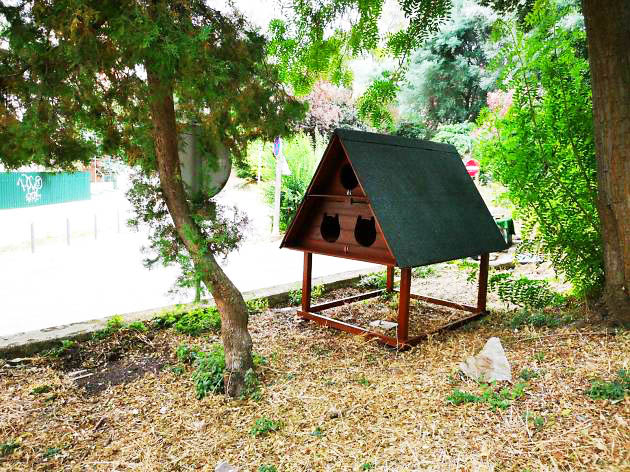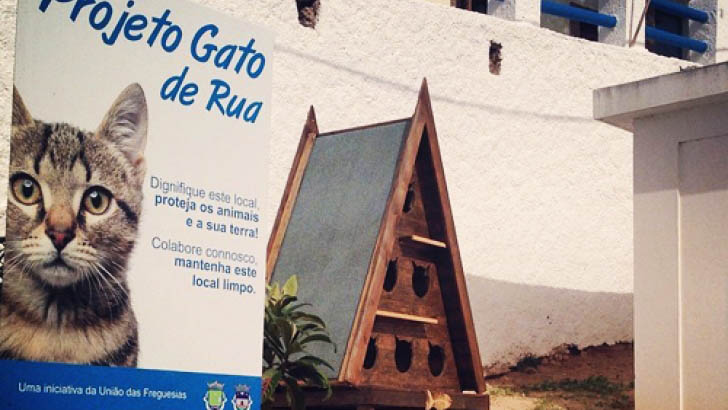A proposal “For the protection, identification and cleaning of the Cat Colonies in the Municipality of Portimão”, presented by Cristina Velha, municipal deputy of Nós, Cidadãos!, was unanimously approved at the most recent session of the Municipal Assembly of Portimão, on 8 February .
In her proposal, the representative of that political force recommends to the Executive Council of Portimão «that the Municipality install shelters in the colonies [of stray cats], to ensure the well-being of animals living in urban areas in identified colonies, allowing them to remain in the place where they live, but in conditions of safety and health».
These colonies, he adds, may be "identified by the volunteers who take care of them, at the Chamber Veterinary Office."
The proposal also recommends that the Executive carry out the «launch of a contest of ideas with the Municipal Schools, for the presentation of projects for “the villages of the cats” (houses, shelters, feeding troughs, etc.) to be installed in spaces where they exist identified colonies, thus promoting this theme among young people and actively involving the student population in this project».
Finally, Cristina Velha's proposal, unanimously approved by the Municipal Assembly, recommends that «the Executive also launch a competition, similar to what was done with the “sponsorship of the roundabouts”, so that private entities can sponsor each of the colonies , either with materials or with food, including the identification and advertisements of these entities in the colonies and respective shelters».

Under the motto "All lives have a value and not a cost", the representative of Nós Cidadãos also stresses, in the preamble of her proposal, that "in the Municipality of Portimão, there are several colonies of cats", which "survive at the expense of the enormous work and dedication of countless anonymous volunteers, who go there daily to take care of these animals».
In some places, “rudimentary “sites/shelters” have been created to better help and protect them and so that caregivers can take care of these animals and take responsibility for them”.
For the municipal deputy of Nós Cidadãos, «each being is special and Life must be respected in all its forms, all of whom must be treated with care, responsibility and dignity, as beings who are also members of the community. The wild nature of these felids and the impossibility of receiving them all in an adequate and dignified way in catteries, as well as the impossibility of adopting all of them, places us, as a community, a challenge that consists in creating the concept of sanctuary, where animals can live in their habitat, protected, safe and happy, treated, with regular veterinary care».
The intention is that the existing colonies «be an example of how animals should be cared for, and that these animals that share the territory with us are seen, not as a pest to be eliminated, but as our companions and neighbors who must be cared for and love".
"Only in this way will it be possible to have a Municipality that is friendly to all, where, through our action and even simple observation of animals in their shelters, the population is sensitized to the adoption and protection of animals and not to their abandonment", he adds. .
“The integration of these colonies into society, supervised by municipal veterinary services and assisted by volunteers, will allow for their control, their hygiene and sanitary protection, the control of unwanted reproduction”, he argues.
"This initiative is in line with the national CED project - Caring, Sterilizing, Returning - which consists of the capture, sterilization, deworming and return of wild cats to the territory of origin, where they are now able to live in safety, under the responsibility of one/one or more caregivers. This is a way to control and reduce the population of wild cats, in good condition for the animals and maintaining hygiene in the public space».



















Comments